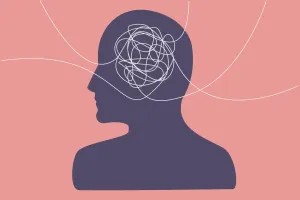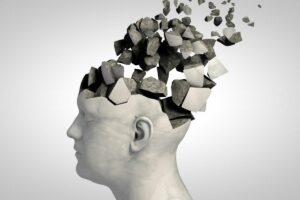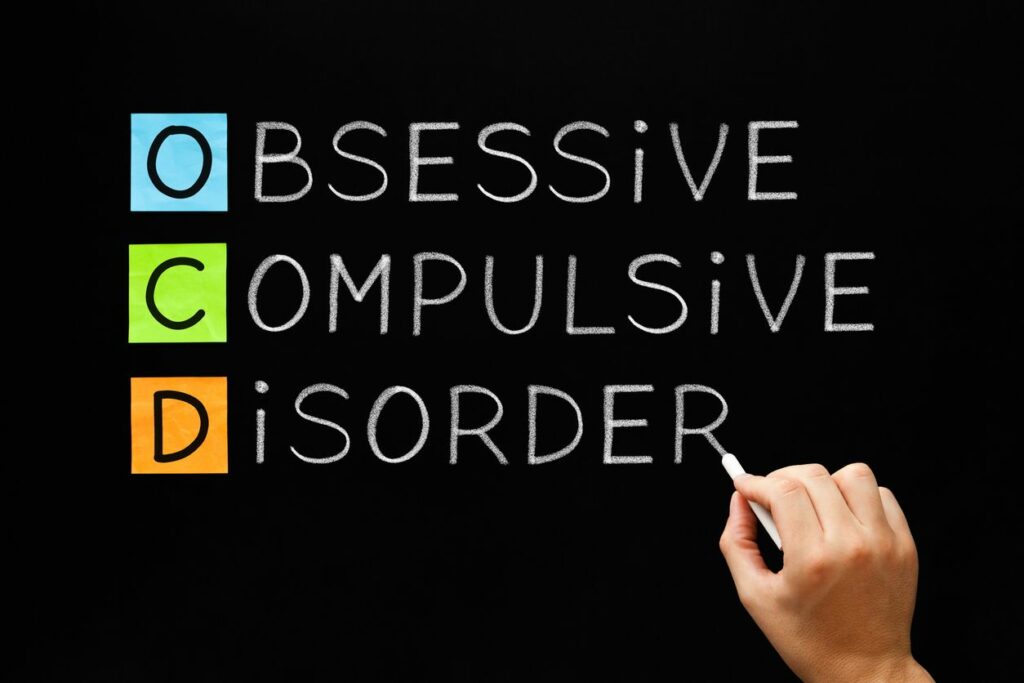
If you have ever worried about whether you remembered something correctly, or if thoughts that may not be true have consumed your brain, then you have experienced a symptom of False Memory OCD. In this type of OCD, intrusive thoughts without rationality cause significant distress and anxiety. These thoughts can be about anything- a past event, a conversation, or something else. If left untreated, False Memory OCD can lead to significant impairment in daily functioning. In this blog post, we will discuss the causes, symptoms, and treatment of False Memory OCD.
Contents
False Memory Obsessive-Compulsive-Disorder

Significant distress and anxiety characterize False Memory OCD. These thoughts can be about anything- a past event, a conversation, or something else. A person’s distorted belief about events and people has been linked to an anxiety-based disorder known as False Memory OCD.
The incident may be something that occurred (but which is subject to dispute) or it might be completely made up by the imagination. People with False Memory OCD may Doubt their memories and question whether they are true. They may also have concerns about acting on these memories (e.g., if the memory is of an embarrassing moment). As a result, people with False Memory OCD often avoid situations that trigger their intrusive thoughts.
Many of these obsessions are the result of a reduced sense of confidence in memory. People with OCD are frequently concerned about numerous things, including the truthfulness of their memories. What-if questions such as “What if I am wrong about this memory? What if it never happened? What if I am just making it up?” plague their minds.
Symptoms of False Memory OCD
The symptoms of False Memory OCD can be divided into two categories: obsessions and compulsions.

Obsessions
Obsessions are intrusive, unwanted thoughts, images, or urges that cause anxiety or distress. In the case of False Memory OCD, these obsessions center around doubts about memories. A person with this disorder may be fixated on whether a memory is real or not. They may also have doubts about their sanity (“Am I going crazy?”). All of this said, so-called “false memories” can result from spontaneous intrusive images labeled with the question “is this another intrusive idea, or is it a memory of something I’ve done?” They can also be the consequence of uninteresting memories distorted by compulsive mental review, much as overplaying an old audio cassette.
Compulsions
Compulsions are repetitive behaviors or mental acts that a person feels compelled to do to reduce anxiety or prevent something bad from happening. In the case of False Memory OCD, these compulsions take the form of mental rituals such as repeatedly questioning oneself, checking memories against reality, and seeking reassurance from others. A person with this disorder may also engage in avoidance behaviors, such as avoiding people, places, or things that trigger their intrusive thoughts.
Causes of False Memory OCD
There is no one cause of False Memory OCD. However, several risk factors may contribute to the development of this disorder. These include:
Family history of mental health disorders
OCD is partially hereditary. “Genetics contribute to overall risk, but they do not entirely determine whether or not an individual will acquire the disease,” explains Christopher Pittenger, Ph.D., Director of the Yale OCD Research Clinic.
Stressful Childhood and Events
Several studies have cemented the connection between childhood trauma and OCD. Stanley Rachman, a psychologist hypothesizes that people are more prone to obsessions when exposed to traumatic events. This is likely because trauma can lead to a loss of trust- both in oneself and in the world. Thus, in turn, it can lead to a need for control and an increase in perfectionism- two key symptoms of OCD.
Stressful life events can trigger Obsessive Compulsive Disorder. This was most famously studied in the case of the “Voodoo Death”. In this case, individuals who believed they were cursed by a Voodoo priest would die after a period of intense stress. While it is unlikely that False Memory OCD would lead to death, it is not surprising that stress can trigger this disorder.
Treatment of False Memory OCD
According to specialists, when individuals with this form of obsessive-compulsive disorder seek therapy early enough, then they can improve their lives. They can receive the following therapies:-
Cognitive Behavioural Therapy
Cognitive Behavioural Therapy (CBT) is a type of therapy that focuses on changing negative thought patterns. In the case of False Memory OCD, CBT can help a person to challenge their intrusive thoughts and therefore learn to better manage their anxiety. It should be noted that CBT is not a “cure” for OCD, but it can be an effective treatment.
Exposure and Response Prevention
CBT for OCD is a form of cognitive-behavioral therapy that aims to gradually confront the concerns, pictures, and scenarios that cause OCD. A professional therapist leads the process and the aim is for the patient to be able to live with anxiety without resorting to compulsions.
Medication
Several medications can help in treating g OCD. The most common are selective serotonin reuptake inhibitors (SSRIs). These drugs work by increasing levels of serotonin in the brain, which can help reduce OCD symptoms. SSRIs are typically taken for 12-16 weeks. If they are effective, the dose may be increased or the person may be switched to a different medication.
Self-Care Tips to tackle False Memory OCD

There is some evidence that meditation may help reduce OCD symptoms. One study found that a group of people who received mindfulness-based meditation therapy had significantly lower levels of OCD symptoms than a control group. “Mindfulness” is a process of purposely bringing attention and laying emphasis on moment-by-moment experiences in a non-judgmental way. Meditation plays a significant role in mindfulness-based therapies.
It can help in the following ways :
- Reducing stress
- Increasing self-awareness
- Improving focus and concentration
- Aids to better sleep
- Eases anxiety
Meditation has been gaining importance due to its capability to provide excellent benefits to its practitioner physically and mentally.
Conclusion
False Memory OCD results in intrusive thoughts, images or urges related to doubts about memories that form a distraction for your mind. This can cause a great deal of anxiety and distress. Luckily, there are treatments available that can help such as CBT, ERP, and medication. These are all effective methods of treatment. Meditation may also help to reduce symptoms and thus provide relaxation. If you think you may be suffering from False Memory OCD, please reach out to a mental health professional for help.
If you are dealing with OCD and want any help, you can reach out to us. Book an online therapy or you can simply download our free OCD treatment app on Android or iOS.


